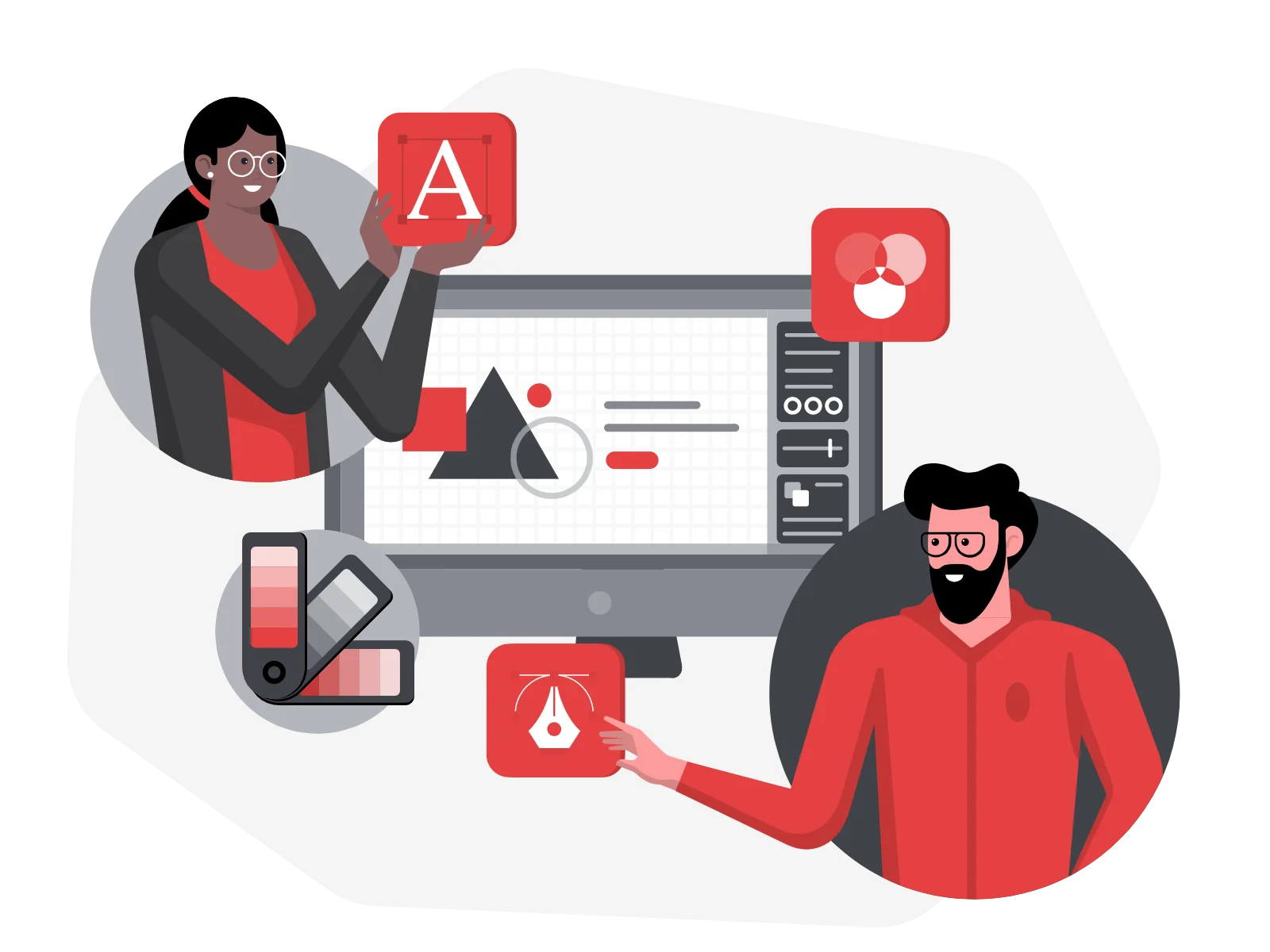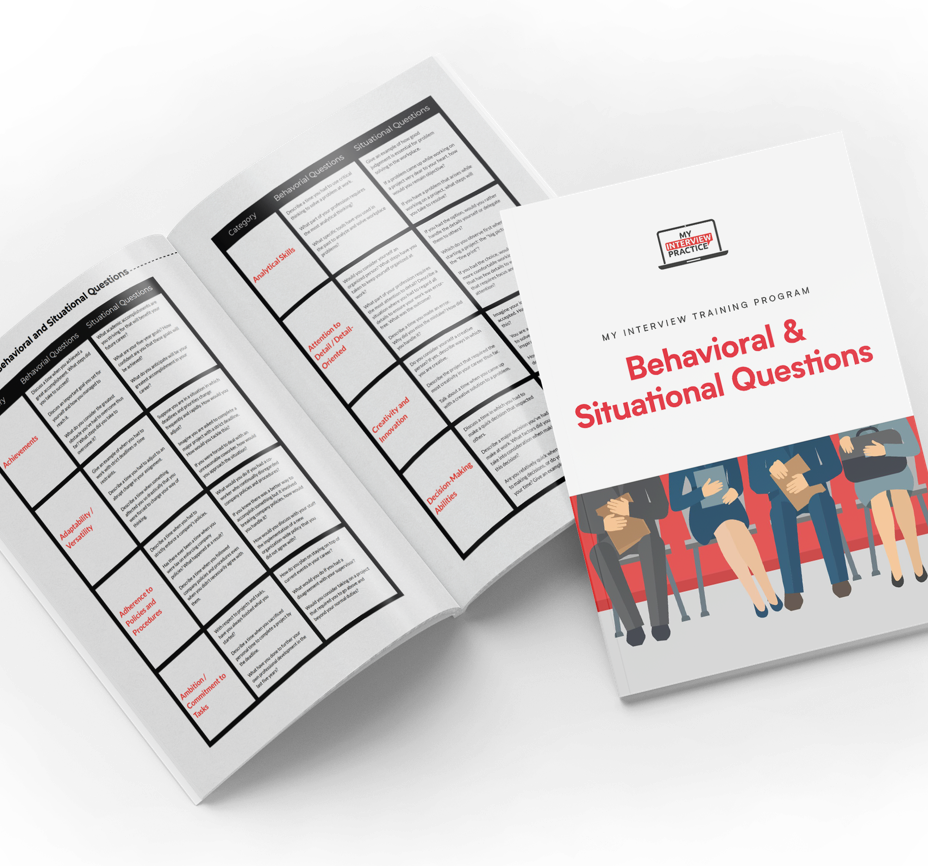Cultural Sensitivity Behavioral Interview Questions

Introduction
Today’s business organizations are made up of individuals from a wide range of cultural backgrounds. This requires employees to interact respectfully and effectively with people who are different from them. These differences can be based on several factors, including:
– Age
– Gender
– Race
– Religion
– Cultural Background
– Sexual Orientation
Cultural differences manifest themselves in the way people communicate and how they act in professional situations. Employers seek to hire candidates who are aware of this and value working in diverse and inclusive environments.
This article will help you get ready for behavioral questions that address your ability to handle situations related to cultural differences. Knowing how to correctly respond to this type of question will help you demonstrate your ability to manage workplace relationships effectively and convince the interviewer you are the right candidate for the job.
Behavioral Questions
Questions about your ability to adapt to differences in culture are a specific type of behavioral questions. Behavioral questions explore how you reacted to situations in your past positions and indicate what you will do when faced with similar challenges in the future. You can identify behavioral questions when the interviewer starts the question with something like, “Tell me about a time …” or “What steps did you take …”

Questions About Your Ability to Effectively Work in Diverse and Inclusive Environments
The best way hiring managers can learn about your ability to work with people with different cultural backgrounds is to ask you questions about your previous experiences. These questions require you to create a story and relate it in an organized and clear fashion. Interviewers will note the methods you use to interact with others, how effective they were, and what results you achieved. They hope to learn that you are a team player who can get along with different people.
How to Answer Cultural Sensitivity-Related Behavioral Questions
Most people are uncomfortable discussing times they had difficulties working with other people at work. It is easier to discuss your background and the key points described in your resume. However, if you anticipate such questions and are prepared to answer them, you will find it easy to respond during an interview. For training on how to research a company’s culture to guarantee you are prepared to answer these sensitive questions look here.
Cultural sensitivity-related behavioral questions can be responded to using the STAR format. This helps you organize your response by creating a story related to the question.

The STAR Format uses the following framework:
Situation – Briefly describe a situation related to the question. Make sure the situation you use is connected to a time when you had to interact with someone different from you.
Task – Summarize the task or goal you needed to achieve. Describe how being sensitive to the differences between you and another person and adapting to them helped resolve an issue or accomplish an objective.
Action – Talk about the actions you took to accomplish the task or goal. These actions should focus on how the steps you took to communicate effectively and act appropriately enabled you to address the issue at hand or complete the work.
Results – Discuss the results you achieved and the impact they had on the organization. Illustrate how your ability to get along with individuals different from you contributed to creating a team environment in which everyone worked toward the same objective.
When preparing for an interview, you should anticipate this type of question and have your STAR stories ready. The stories you relate should be relevant to the position for which you are interviewing so they resonate with the hiring manager. Preparing your stories in advance and rehearsing them before the interview will give you confidence. This will also enable you to respond to the interviewer’s questions by providing compelling stories and communicating them clearly and expertly.
Cultural Sensitivity-Based Behavioral Questions
Here are some examples of cultural sensitivity-based behavioral questions you can anticipate during an interview, the rationale behind them, and an example of how you can respond to them.

Question: Can you talk about when you worked on a team with individuals from different cultural backgrounds?
Explanation: Working with people from different backgrounds and cultures is a fundamental qualification hiring managers look for when interviewing candidates. Your ability to tell a story that illustrates how you have been able to do this in one of your past positions will demonstrate both your qualifications and your communication skills.
Example: “Every organization I have worked for has been made up of people from different backgrounds which include individuals from other countries with different religious beliefs and people of different sexual orientations. Being aware of this and knowing how to effectively get along with different people has helped me succeed throughout my career. (Situation) An example of this was when I was assigned to work with the team in one of our foreign offices. (Task) We had to develop a marketing campaign that would resonate with customers across the globe. The challenges related to this became apparent immediately due to our different cultures and communication styles. (Action) Recognizing we needed to work through these differences to accomplish the goal, I recommended we spend some time getting to know each other personally before starting the project. By learning about each other’s cultural background, histories, and unique experiences, we were able to break down the cultural barriers between us. It also helped us learn to communicate effectively with each other. (Results) Because we moved past our differences, the project was completed on time, and management accepted our recommendations. Within six months of launching the global campaign, sales increased by 50%, and we gained entry to several new global markets.”
Question: Describe a time when you found it challenging to work with someone who was culturally different from you.
Explanation: The ability to demonstrate how you can work with people who are different than you is critical when interviewing for a job. Employers look for individuals who are team players and can work with diverse groups of people. This ensures workplace conflicts will be minimized and employees can focus on the tasks at hand. Having a story prepared about a time you were challenged to work with somebody with a different background will help you succeed at a job interview.
Example: “In my current organization, I was partnered with an engineer who was raised in a very strict religious household. My background was more liberal. This created issues with our ability to communicate and relate to each other. We were assigned a project to develop a software program for the HR department. We had trouble agreeing upon the user interface and how employees would interact with the software. We realized it was due to the differences in our backgrounds. We decided the best way to overcome this was to interview several employees and learn how they would like to interface with the program. By focusing on somebody else, we developed ways to collaborate more effectively. The result was we created a user interface the employees liked that we both agreed on. The software was deployed and was one of the most effective tools the organization uses.”

Question: Tell me about an incident when you witnessed racial tension among colleagues at work. How did you react?
Explanation: Unfortunately, racial tensions still exist in today’s society. Most people are very uncomfortable witnessing events involving racism and react in different ways. Incidents involving racism can be very obvious or very subtle. The way you react to them says a lot about your character. If you have witnessed a workplace incident related to racism, you should briefly describe the incident and then focus on your reaction and the steps you took to mitigate it.
Example: “While it’s rare, I have witnessed racial incidents at work. On a recent occasion, some employees were discussing how immigrants were impacting the U.S. economy. One of our co-workers, a U.S. citizen of Hispanic heritage, overheard the conversation and was obviously uncomfortable. When I noticed this, I went out of my way to engage with him and discuss how immigrants have positively impacted our country. We then had a conversation about various topics and began to understand each other’s backgrounds better. This resulted in us becoming friends and interacting outside of the workplace. Through this, I learned that he was not that upset about the group’s conversation and understood that people have different opinions about the topic of immigration.”
Question: How do you adapt your communication style to account for the different cultures and customs of your co-workers? Can you give me an example?
Explanation: One of the key challenges of working in a diverse environment is that people have different communication styles based on their backgrounds. Being able to adapt to these styles and communicate effectively with everybody you work with is a good employee’s fundamental quality. You can even demonstrate your ability to do this during the interview by adapting your communication style to that of the interviewer.
Example: “Early in my career, I recognized that in order to be effective at work, I needed to be able to communicate clearly with all the people I work with. I became sensitive to each individual’s communication style and adapted my style to meet theirs. An example of this is when I am talking to somebody who is an English-as-a-second-language speaker, I talk slightly slower, using simple language without slang, acronyms, or other terms they may not understand. I occasionally stop to confirm they understand what I am telling them. I also ask for their input if we need to make a decision or reach a conclusion.”
Question: Provide me an example of when your values and beliefs impacted your relationships with someone you worked with.
Explanation: This is a difficult question because it asks you to describe a situation in which a problem occurred. When asked questions like this, make sure the results you describe in your STAR answer include how you overcame the challenge, resolved the issue, or learned from the situation. Failing is okay as long as you come away having learned a lesson you can use were the situation to recur.
Example: “I was raised in a household that was very accepting and tolerant of people with different beliefs and backgrounds. In one of my previous jobs, I worked with somebody who had strong fundamental religious beliefs. Any time we discussed something related to politics or religion, it ended up in a disagreement. Neither of us was willing to compromise our values which made it very difficult for us to work together. Ultimately, I asked to be assigned to a different department. What I learned from this was to keep workplace conversations to topics that were not controversial.”

Additional Communication Questions
Talk about a time when you changed your behavior to better work with a customer from a different country.
Describe a situation when you had to consider a different perspective than your own when attempting to resolve an issue.
Tell me about a time when you considered someone’s cultural background when dealing with them.
Have you ever encountered a situation when you had to consider the sensitivities of people different than you? Tell me about it and what steps you took.
Can you discuss a time you observed someone behaving in a culturally insensitive manner in the workplace?
Talk about the steps you took to help someone feel more comfortable when they were in a group that was made up of people from a different cultural background than theirs.
Discuss some policies you recommended to encourage a commitment to excellence through diversity at your former employers.
Discuss your approach to recruiting, hiring, training, and managing a diverse workforce.
Tell me about a time when you took some steps to promote diversity and inclusion at work.
What strategies have you used to address challenges to under-represented or disadvantaged groups in the organizations you were a part of?

The key to nailing your interview – practice, practice, practice.
As with anything, practice makes perfect. The most common ways to practice are with in-person mock interviews or a list of questions. While these options are a great place to start, they can leave a lot to be desired.
Practicing with In-Person Mock Interviews and Question Lists
One way to get valuable interview practice is to set up in-person mock interviews. Unfortunately, they can be somewhat inconvenient. You have to find someone to conduct the mock interview, and schedule a meeting every time you want to practice.
Question lists offer a much more convenient way to practice interviewing. Unfortunately, they do little to recreate actual interview pressure. In a real interview you’ll never know what’s going to be asked and this is exactly what can make interviews so stressful.
Interview Simulators – The best of both worlds.
With interview simulators, you can take realistic mock interviews on your own, from anywhere.
My Interview Practice offers a dynamic simulator that generates unique questions every time you practice, ensuring you're always prepared for the unexpected. Our AI-powered system can create tailored interviews for any job title or position. Simply upload your resume and a job description, and you'll receive custom-curated questions relevant to your specific role and industry. Each question is crafted based on real-world professional insights, providing an authentic interview experience. Practice as many times as you need to build your confidence and ace your next interview.
| List of Questions |
In-Person Mock Interview |
My Interview Practice Simulator |
|
|---|---|---|---|
| Questions Unknown Like Real Interviews | |||
| Curated Questions Chosen Just for You | |||
| No Research Required | |||
| Share Your Practice Interview | |||
| Do It Yourself | |||
| Go At Your Own Pace | |||
| Approachable |
Our interview simulator uses video to record your responses, and recreates the pressure you would feel in a real interview. This also allows your to see how you perform and perfect your responses. You can then share your responses with colleagues and mentors so that you can get valuable feedback.
Get the free training guide.
See the most common questions in every category assessed by employers and be ready for anything.
Get the Guide



